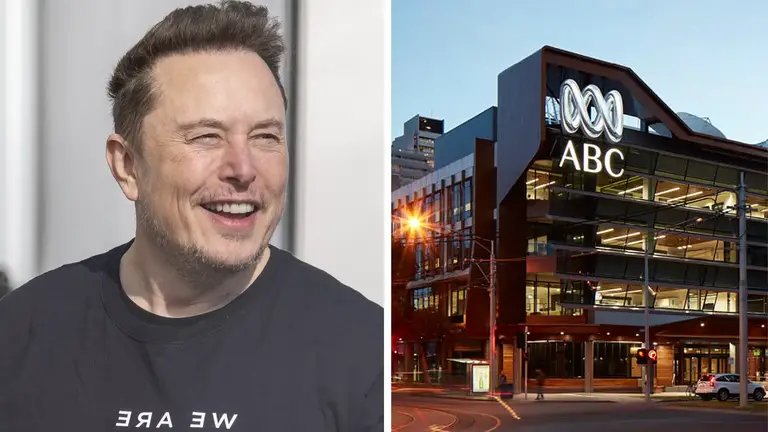In a stunning turn of events, ABC Network faced a massive drop in its subscriber base, losing nearly one million viewers overnight. This drastic decline follows a call for a boycott by billionaire entrepreneur Elon Musk, who urged his followers to reconsider their support for the network amid growing tensions surrounding media portrayals of technology companies and their leaders. Musk, the CEO of Tesla and SpaceX, has consistently been an outspoken figure, particularly on social media, where his influence is unparalleled, especially on platforms like Twitter, where he boasts millions of followers. Recently, Musk expressed his dissatisfaction with ABC’s coverage of technology and business news, claiming it unfairly depicted him and his companies. In a tweet that quickly gained traction, Musk called for his followers to boycott ABC, arguing that the network perpetuates negative narratives about innovators in the tech industry.
The fallout from Musk’s statement was immediate and severe. As news of the boycott spread across social media platforms, many of his supporters rallied behind him, leading to a significant spike in calls for subscribers to drop the network. The response was not just limited to social media; discussions about the boycott made headlines across various news outlets, amplifying its impact. The loss of nearly onе million subscribers overnight represents a staggering blow to ABC, which has invested heavily in digital content and streaming services.
This decline not only affects advertising revenue but also impacts the network’s reputation and future programming strategies. With viewership metrics becoming increasingly critical in a competitive media landscape, losing such a substantial audience raises questions about the sustainability of ABC’s business model.
Industry analysts suggest that the subscriber loss could also be indicative of broader trends in media consumption. As audiences become more fragmented, they are more willing to shift their loyalties based on personal values and the perceived integrity of content. In this instance, Musk’s influence played a pivotal role in swaying public opinion, showcasing the power of social media in shaping consumer behavior. Musk’s call to action highlights a critical intersection between technology, media, and public sentiment. Social media has become a powerful tool for shaping narratives and mobilizing action. In this case, Musk leveraged his extensive platform to galvanize his supporters, demonstrating the potential for social media to influence traditional media outlets.
The speed at which news travels in the digital age means that a single tweet can have far-reaching consequences. For ABC, the repercussions of Musk’s boycott call serve as a reminder of the vulnerability of established media organizations in the face of rapid technological change and the rise of new forms of influence. In the wake of this incident, ABC is faced with numerous challenges. The network must not only address the immediate loss of subscribers but also consider how to rebuild its image and regain trust among viewers. This may involve a reevaluation of its programming and editorial stance, especially concerning technology-related content. Moreover, the network will need to engage in dialogue with its audience to better understand their concerns and perceptions. Transparency in reporting and a commitment to balanced coverage could be steps towards rebuilding credibility.

As media consumption continues to evolve, networks like ABC will need to adapt to remain relevant. In addition to addressing subscriber loss, ABC may also explore partnerships with other platforms or influencers to counterbalance the impact of the boycott. Engaging with a broader audience through diverse channels could help restore its subscriber base and attract new viewers. The fallout from Elon Musk’s boycott call serves as a cautionary tale for traditional media outlets. The rapid loss of nearly one million subscribers overnight underscores the importance of maintaining a positive relationship with audiences in an age dominated by social media influence.

As ABC navigates this crisis, its response will not only shape the future of the network but also serve as a case study in how media companies can adapt to the changing landscape of public opinion and technological advancement. As the story unfolds, it will be crucial to monitor the long-term effects of this incident on ABC’s viewership and its overall strategy in an increasingly complex media environment. The incident exemplifies the delicate balance media organizations must strike between editorial independence and audience engagement in the era of social media influence.
News
Here’s What Elon Musk And His Family Typically Eat In A Day
A Glimpse into the Musk Family Dining Habits Elon Musk, the visionary behind Tesla and SpaceX, is known for his relentless work ethic and groundbreaking innovations. But what does the world’s richest man eat to fuel his extraordinary endeavors? And…
Billie Eilish Leaves US Because The Red Wave Is Too Strong, “I Can’t Live Here Anymore”
Billie Eilish, the globally renowned pop icon and Grammy-winning artist, has always been more than just her music. Her voice resonates not only through her hauntingly beautiful songs but also in her bold political statements. Recently, the shocking revelation that she has left the United…
Jennifer Lopez joined by hunky bodyguard in LA as she gets candid about ‘struggles’ after Ben Affleck split
Jennifer Lopez showcased her abs while out on a shopping trip after getting candid about being a mom who puts her ‘best foot forward’ still doesn’t stop her from being a ‘human being who struggles.’ The 55-year-old A-lister – who, along…
“I Definitely Hated It”: Aaron Rodgers Says He Regrets Hooking Up With All The Famous Women He Dated
Aaron Rodgers has made a statement on his past relationships that suggests he’s probably regretful. The New York Jets quarterback has dated some famous women since making the step up to the NFL but apparently did not enjoy the scrutiny that came with the territory….
Kansas City Chiefs President Forced To Address Rumors That Taylor Swift & Travis Kelce’s Relationship Is Just A “Marketing Strategy” For The Team
There’s a conspiracy theory for just about everything, including bizarre ones relating to the highly publicized relationship between Grammy Award-winning singer Taylor Swift and Kansas City Chiefs tight end Travis Kelce. The three-time Super Bowl champion has been in a relationship with Taylor…
Jennifer Garner’s Farm-Style Los Angeles Home: A Blend of Warmth and Functionality
Of her new home, Jennifer Garner notes, “I wanted it to feel old and cool and historic, but I also wanted to make it work for a big family with a lot of things going on.” The actor, who reprised…
End of content
No more pages to load











